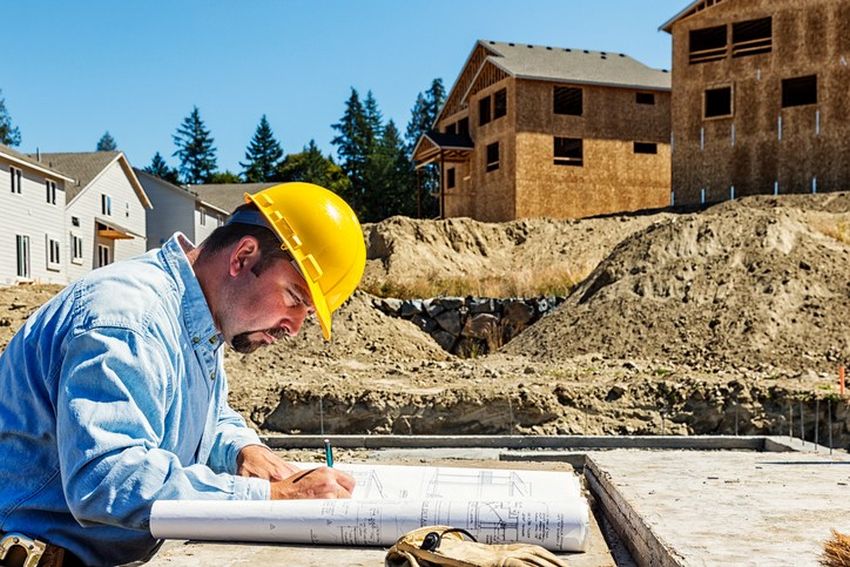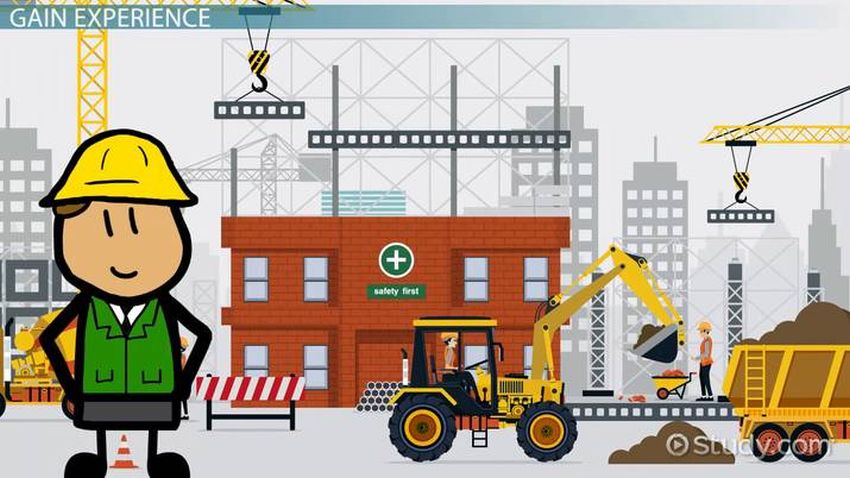We’ve all been in that situation where we’re meeting some distant family relative or friend of our parents. The comments about how much we’ve grown start coming in and how much older and mature we look now.
Then the direct questions start flying through the air like arrows.
“So, do you have a boyfriend?”
“Why not?”
“What are you studying?”
“What do you want to do with that?”
Sometimes, we answer easily and other times you simply try and give non-committal answers, hoping to escape the conversation and do, well, literally anything else in the world.
Answering those questions about your future career can be easier for some than others. Doctors have it pretty easy: four years of undergrad, followed by four years of medical school, followed by residency and then followed by board exams before they can step into their first job.

source:youthincmag.com
But what about construction? Is there a direct path? Do people start out with a hammer and a few nails before they work their way up?
Construction is a great career to pursue, not just because of the dire need for workers but also because of the rising salaries. Even those working everyday jobs can earn close to $80,000 after a few years of experience.
Like other jobs, there is no perfect, direct path to carving out a career in construction. You can take direct paths, long-winding paths or get lost before ending up at your construction destination.
Page Contents
Education

source:youthincmag.com
Let’s start out at the very beginning. Is there any kind of education that you can pursue to better your chances of starting a career in construction? Yes, there definitely is.
It all depends on what you want to do (more on that later), but you can find some degrees in construction that will help boost your career.
The most common is construction management, where you will learn all of the rules and regulations of construction, from building codes, estimation, reading construction plans, methods and materials and more. It’s the most “basic” degree in this certain field.
After that, there is construction technology. This is more of a trade degree, where you’ll learn about specific positions in technology such as framing, cabinet making, foundation, masonry or electrical systems.
If you’re looking for a BS degree, you can also pursue construction management. Here, you’ll learn about surveying, accounting, quality control and management technology.
Past that, there are master’s and doctorate degrees.
You’re not going to be able to find all of these degrees at any university, so do your research before choosing where you want to study.
On top of the construction management, there is also architecture, concrete management and more that can be found in the classroom or online.
Internships

source:youthincmag.com
During summers or even during the academic year, you should be looking for construction internships. Construction is a field that hands-on experience really counts for something. You’ll be doing much more than just getting coffee every day.
When choosing an internship, you might be tempted to go for exactly what you think you want to do in the future. Instead, you should try and make your profile as broad as possible. It’s an internship, not your definite future job.
Also, it will show that you’re willing to try plenty of different fields before committing to one. Being well-rounded is great for job hunting in the future and you won’t feel like you’re putting yourself in a box.
It will help you branch into other departments or take on other jobs when you can demonstrate that you have proven experience in the area. When you’re just starting out, it’s better to go wide than deep.
Staying Up to Date

source:youthincmag.com
Construction is just like any other job field, in that it is ever-changing. Sure, you may have pictured rough men with tool belts, work boots and hard hats running around in perfect unison but the fact is construction is much more than that.
Technology is making a lasting impact on construction, meaning that it’s beneficial for you to be paying attention to the latest trends and innovations.
For example, drones are making a huge impact in construction, allowing workers and managers to see their projects from previously unrealistic angles. There are hard hats that collect user data as well as monitoring software that track worker progress, making sure no one is being overworked or at physical risk.
You might have been using plenty of these tools and software during your education or internships, but it’s always great to stay on top of the latest uses outside of work. You can use your experience with these on future resumes, showing that you won’t need as much training and can easily jump into a job and start from day one.
Smart tools are entering the field, helping workers and managers alike work both smarter and faster.
Companies are taking a page out of the millennial handbook, using long-term rentals for certain equipment. Flex Fleet is an example of this, as companies opt for the ease and service of Flex Fleet for their trucks. They make it easy to rent, use and return.
The First Job

source:youthincmag.com
When you’re looking for your first construction job, it’s important to have a strong resume. Look up examples of other construction resumes to see how you should go about formatting and designing your resume in order to make it the most attractive to potential recruiters.
When you’re looking for a job, it’s important to look at the job in the long-term. With a labor shortage incoming in the construction industry, companies are looking to hold on to their workers as long as possible. Don’t just think about your first job as being a stopgap, but see how you can stay at the job for the long period.
Why? Because consistency is more important in the job world and being at the same company means you’re more likely to see bonuses or promotions come your way after continued work. Salaries are on the rise as well and you’re likely to maximize your earning potential showing dedication.





